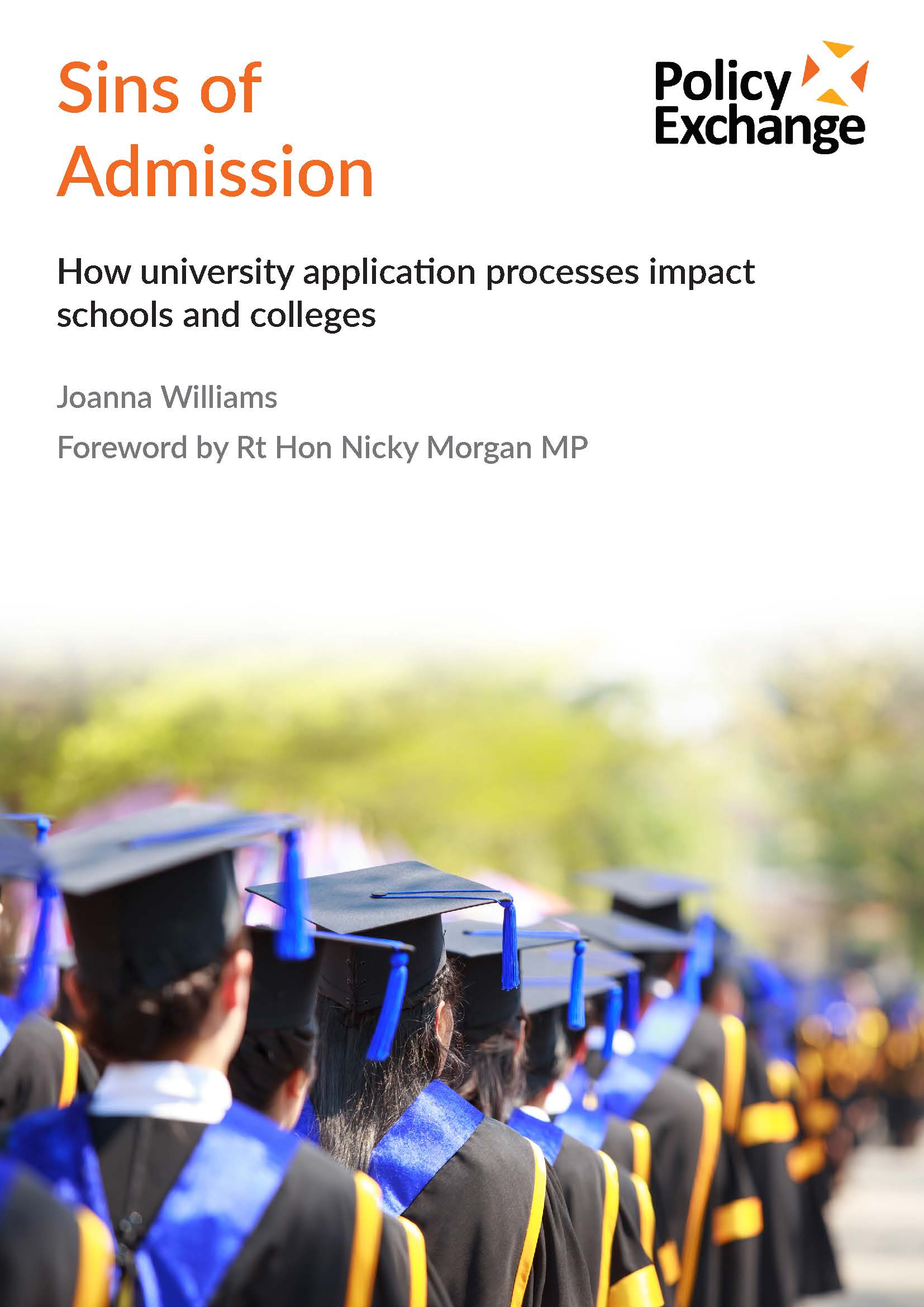
Sins of Admission
How university application processes impact schools and colleges
Recent changes to university admissions are having a detrimental impact on schools and sixth form colleges – and on teachers and pupils in the process of applying for higher education.
Recommendations
1 Move to a post-qualification admissions system
Currently, the UK is one of the only countries in the world where pupils not only apply to university but are also offered places before they have taken final examinations. This puts pressure on teachers and pupils and increases uncertainty for universities. Under a post-qualifications admissions system, pupils could continue to apply to university while still at school but no offers would be made, or places allocated, until final exam results are known. A-level exams may need to be sat slightly earlier, or the academic year may have to begin a little later, in order for additional time to administer places after results have been released.
2 Stop the routine use of unconditional offers
Universities should not make students unconditional offers other than in exceptional circumstances, for example in cases where mature applicants have already met entry requirements. Conditional offers that become unconditional upon firm acceptance are designed simply to consolidate a customer base. This is not in the best interests of schools or students and this practice must end.
3 Remove predicted grades from the application process
Grade predictions, like academic targets, should be a matter for pupils, teachers and parents and not routinely shared with universities.
4 Stop the routine use of contextual offers
Universities should not make students contextual offers other than on an exceptional, case by case, basis. Universities looking to promote social inclusion and equality of opportunity should establish a close and deep network of partner schools in order to support the education of children from disadvantaged backgrounds.
5 End higher education as a ‘rite of passage’
A-levels need to be considered worthwhile qualifications in their own right. Schools should promote a wide range of alternative routes to all pupils, including apprenticeships, employment, professional qualifications and higher education. We need more focus on the needs of young adults who do not go to university.
Policy Exchange’s excellent report highlights the damage unconditional offers can do to students’ motivation and how they can undermine sixth form education more broadly. The enormous rise in the number of these offers is a worrying development and I am persuaded by the argument that they should be scrapped, apart from in exceptional circumstances.

